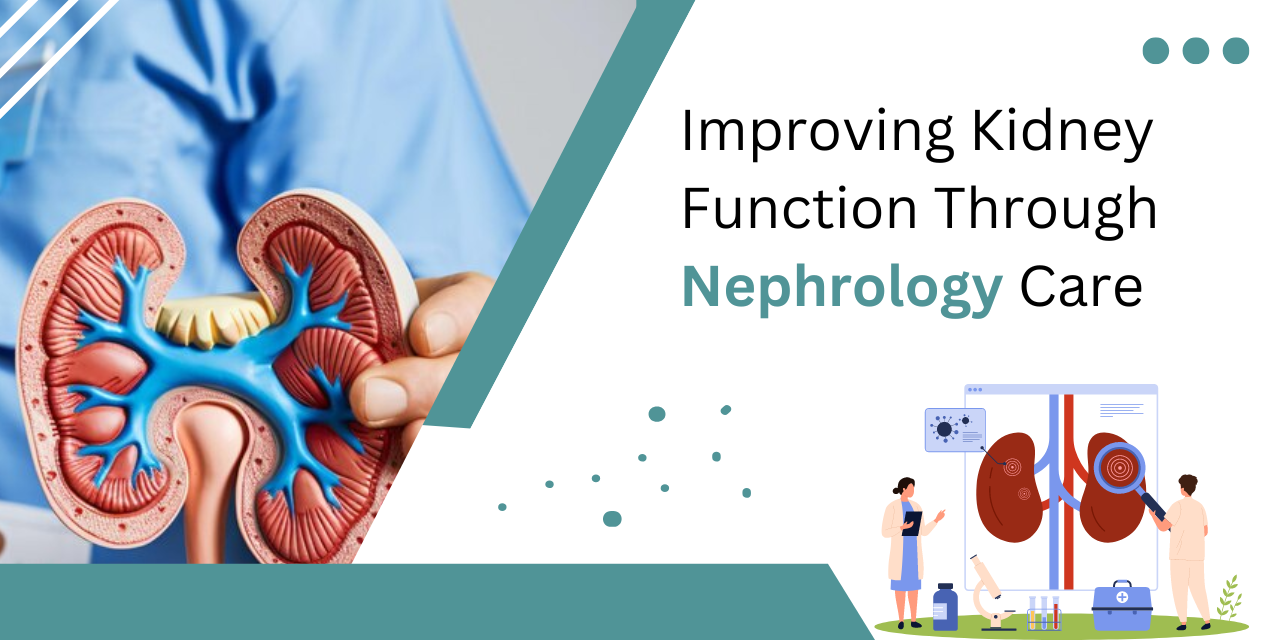Kidney health is vital for overall well-being, as these organs play a crucial role in filtering waste, balancing fluids, and regulating blood pressure. Nephrology care focuses on the prevention, diagnosis, and treatment of kidney diseases, which can significantly improve kidney function and enhance quality of life. This article explores how nephrology care can assist individuals in maintaining and improving their kidney health.
Understanding Nephrology
Nephrology is a specialized branch of medicine that deals with kidney function and diseases. Nephrologists are trained to manage conditions such as chronic kidney disease (CKD), acute kidney injury (AKI), kidney stones, and hypertension. They utilize various diagnostic tools, including blood tests, urine tests, and imaging studies, to assess kidney function and determine appropriate treatment plans.
Importance of Early Intervention
One of the most critical aspects of nephrology care is early detection of kidney diseases. Many kidney conditions progress without noticeable symptoms until the later stages, making routine check-ups essential for at-risk individuals. People with diabetes, high blood pressure, or a family history of kidney disease should undergo regular kidney function tests, such as:
- Blood tests (to measure creatinine levels and glomerular filtration rate)
- Urine tests (to detect proteinuria or blood in the urine)
- Ultrasounds or CT scans (to detect structural abnormalities in the kidneys)
Early intervention can help in slowing the progression of chronic kidney diseases. Nephrologists often recommend lifestyle changes such as diet modifications, increased physical activity, and weight management to protect kidney function.
Treatment Options in Nephrology
Nephrology offers a range of treatment options tailored to individual needs:
⤍ Medication Management: Nephrologists prescribe medications to control blood pressure, manage diabetes, and treat electrolyte imbalances. These medications can help protect kidney function over time.
⤍ Dietary Modifications: A renal dietitian often collaborates with nephrologists to create personalized dietary plans that limit sodium, potassium, and phosphorus intake. Proper nutrition plays a critical role in managing kidney health.
⤍ Dialysis: For patients with advanced kidney failure, dialysis may be necessary. This process removes waste products from the blood when the kidneys can no longer perform this function effectively.
⤍ Transplantation: In cases of end-stage renal disease (ESRD), a kidney transplant may be the best option. Nephrologists coordinate with transplant surgeons to ensure patients are suitable candidates for transplantation.
Lifestyle Changes for Kidney Health
In addition to medical interventions, lifestyle changes are crucial for improving kidney function:
- Hydration: Drinking adequate water helps kidneys filter waste efficiently. However, fluid intake may need to be monitored in patients with certain conditions
. - Exercise: Regular physical activity can help maintain a healthy weight and lower blood pressure, both of which are beneficial for kidney health.
- Avoiding Toxins: Limiting exposure to harmful substances such as tobacco and excessive alcohol can protect kidneys from damage.
Conclusion
Nephrology care plays a vital role in improving kidney function through early detection, personalized treatment plans, and lifestyle modifications. If you are experiencing symptoms related to kidney health or have risk factors for kidney disease, seeking consultation from a specialist is crucial.For top-notch kidney treatment in Panchkula, consider visiting Raffels Hospital. For appointments or inquiries, you can reach out at +919356728000.










